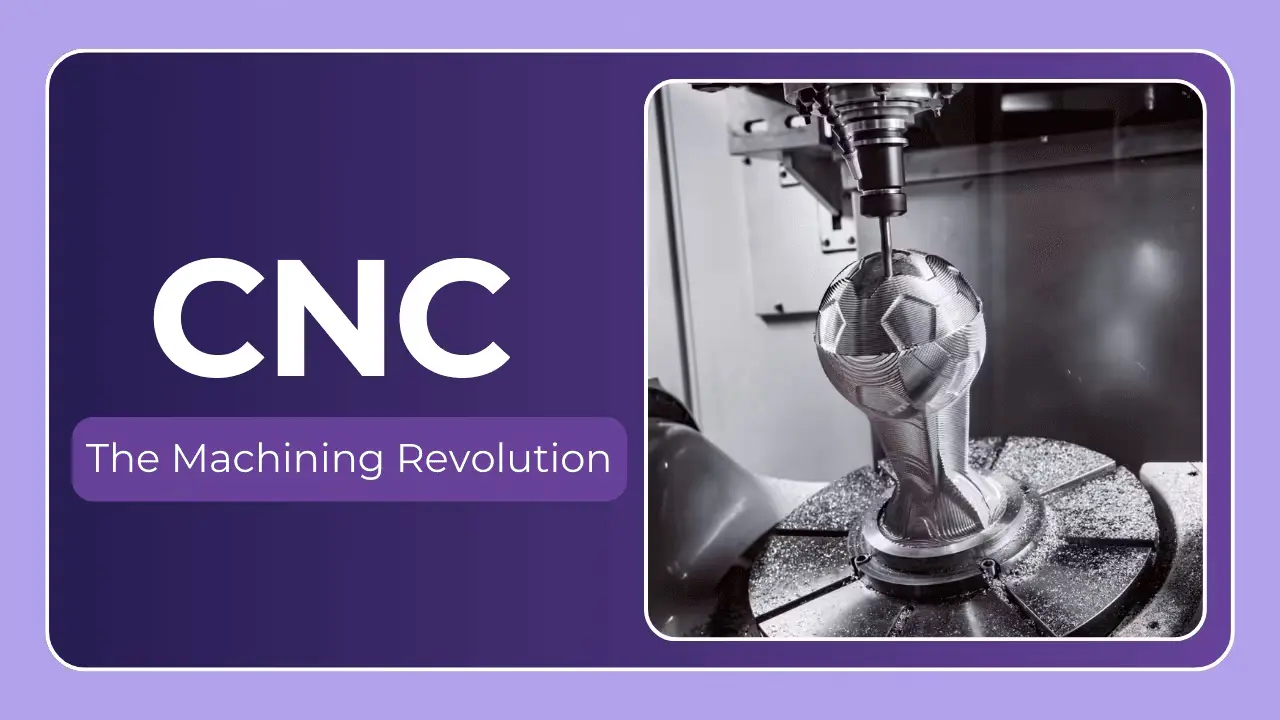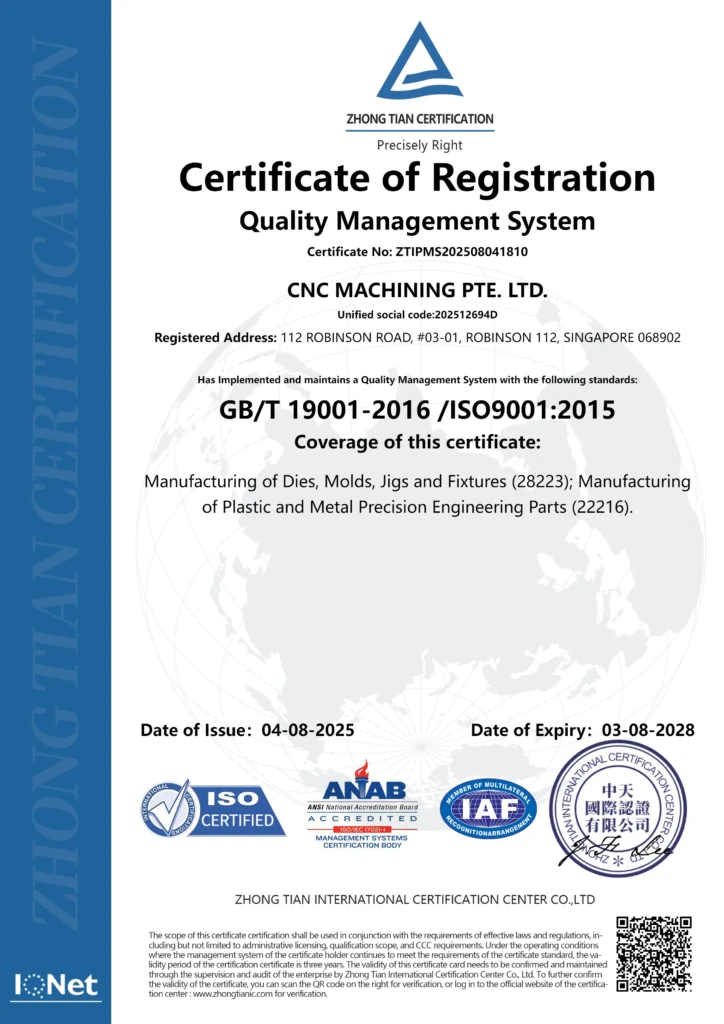Unlocking Precision: A Deep Dive into CNC Machining Services
In today’s manufacturing landscape, precision, efficiency, and repeatability are paramount. Whether you’re developing a prototype, creating tooling, or mass-producing components, the demands on material processing are higher than ever. This is where Computer Numerical Control (CNC) machining services come in. But what exactly are CNC machining services, and how can they benefit your project? This article will provide a comprehensive overview, covering the process, benefits, common applications, materials, and what to look for when selecting a CNC machining provider, with a specific nod to the advanced capabilities available in Singapore.
What is CNC Machining?
At its core, CNC machining is a subtractive manufacturing process. This means material is removed from a solid block (the workpiece) to create the desired shape. However, unlike traditional machining which relies on manual operation, CNC machining is automated using pre-programmed computer instructions. These instructions control the movement of tools along multiple axes – essentially dictating how the cutting tools remove material.
Think of it like a robotic arm wielding specialized cutting tools with incredible accuracy. The "brain" of the operation is the CNC machine, guided by G-code – the programming language it understands. This precision translates directly into parts with tight tolerances, complex geometries, and consistent quality.
The CNC Machining Process – A Step-by-Step Breakdown:
- Design & CAD Modeling: The process begins with a 3D digital design, typically created using Computer-Aided Design (CAD) software. This design serves as the blueprint for the final part.
- CAM Programming: The CAD model is then imported into Computer-Aided Manufacturing (CAM) software. The CAM software translates the CAD design into G-code, specifying tool paths, cutting speeds, feed rates, and other machining parameters. This is where the how of making the part is defined.
- Material Selection: Choosing the right material is crucial. The material must meet the functional requirements of the part, as well as be machinable by the intended CNC process (more on materials later).
- Setup & Fixturing: The raw material is secured to the CNC machine’s worktable using a system of fixtures. Proper fixturing is vital for stability and accuracy throughout the machining process.
- Machining: The CNC machine executes the G-code, precisely moving the cutting tools to remove material layer by layer, gradually forming the desired shape.
- Inspection & Quality Control: Once machining is complete, the part undergoes rigorous inspection using tools like calipers, micrometers, CMM (Coordinate Measuring Machines), and visual inspection to ensure it meets specified tolerances and quality standards.
- Post-Processing (Optional): Depending on the requirements, additional processes like deburring, polishing, anodizing, painting, or heat treatment may be applied to enhance the part’s functionality or appearance.
Why Choose CNC Machining Services? Key Benefits:
- Precision & Accuracy: CNC machines can consistently achieve tolerances down to +/- 0.001 inches (25 micrometers), making them ideal for parts requiring exacting specifications.
- Repeatability: Once programmed, a CNC machine can reliably reproduce the same part time after time with minimal variation.
- Complexity: CNC machining excels at creating complex geometries and intricate designs that are difficult or impossible to achieve with manual machining.
- Versatility: CNC machining is adaptable to a wide range of materials, including metals, plastics, wood, and composites.
- Speed & Efficiency: Automated operation significantly reduces machining time compared to manual methods, particularly for complex parts or large production runs.
- Scalability: Easily transition from prototyping to low-volume or high-volume production with minimal setup changes.
Common CNC Machining Processes:
- Milling: Perhaps the most common CNC process, using rotating multi-point cutting tools to remove material. It’s versatile for creating various shapes and features.
- Turning: The workpiece rotates while a stationary cutting tool removes material, ideal for cylindrical shapes.
- Drilling: Creates holes with high precision and accuracy.
- Tapping: Creates internal threads within a hole.
- Routing: Similar to milling, but often used for softer materials like wood and plastics.
- EDM (Electrical Discharge Machining): Uses electrical sparks to remove material, perfect for hard materials and intricate shapes. Often used for dies and molds.
- Five-Axis Machining: This is where the real power lies. Five-axis machining allows the cutting tool to approach the workpiece from multiple angles simultaneously. This unlocks unparalleled complexity, reduces setup time for intricate parts, and improves surface finish. CNC MACHINING PTE. LTD in Singapore specializes in this advanced technique, offering significant advantages for challenging projects.
Materials Commonly Machined with CNC:
| Material | Common Applications | Machinability |
|---|---|---|
| Aluminum | Aerospace, Automotive, Electronics | Excellent |
| Stainless Steel | Medical, Food Processing, Marine | Good |
| Titanium | Aerospace, Medical Implants | Difficult (requires specialized tooling) |
| Brass | Plumbing, Electrical Connectors, Decorative Items | Excellent |
| Copper | Electrical Components, Heat Sinks | Good |
| Plastic (ABS, Delrin, Acrylic) | Prototypes, Housings, Consumer Products | Excellent to Good |
| Tool Steels | Tooling, Molds, Dies | Difficult (requires specialized tooling & techniques) |
Applications Spanning Industries:
CNC machining services are foundational to a vast array of industries:
- Aerospace: Manufacturing lightweight, high-strength components for aircraft.
- Automotive: Creating engine parts, transmission components, and tooling.
- Medical: Producing precise implants, surgical instruments, and diagnostic equipment.
- Electronics: Manufacturing housings, connectors, and heat sinks.
- Oil & Gas: Fabricating components for drilling equipment and pipeline systems.
- Robotics: Producing complex parts for robotic arms and systems.
Choosing the Right CNC Machining Partner – What to Look for:
Selecting a reliable CNC machining service provider is crucial for project success. Consider the following:
- Capabilities: Do they offer the processes you need (milling, turning, 5-axis machining, etc.)?
- Materials Expertise: Can they work with the specific material your project requires?
- Equipment: Modern, well-maintained CNC machines are essential for quality and accuracy.
- Experience & Expertise: A seasoned team of machinists and engineers can offer valuable insights and optimize the manufacturing process.
- Quality Control: Robust quality control procedures and certifications (e.g., ISO 9001) are vital.
- Turnaround Time: Can they meet your project deadlines?
- Cost & Transparency: Clear and competitive pricing with no hidden fees.
- Location: Proximity can reduce shipping costs and lead times. For those in Southeast Asia, Singapore offers a strategic hub for high-quality CNC machining, with companies like CNC MACHINING PTE. LTD providing rapid prototyping and efficient production.
Conclusion: Embracing the Future of Manufacturing with CNC
CNC machining services represent a significant advancement in manufacturing technology, enabling the creation of highly precise, complex, and reliable parts. From rapid prototyping to large-scale production, CNC machining is indispensable across a wide range of industries. By understanding the process, the benefits, and key considerations when selecting a partner, you can unlock the full potential of this technology for your next project.
When demanding precision, complexity, and speed, it’s important to consider providers with advanced capabilities, like five-axis machining. If you’re searching for a dependable, cutting-edge CNC machining service provider, particularly in the Singapore region, CNC MACHINING PTE. LTD stands out as a professional manufacturer dedicated to solving complex metal parts challenges with advanced technology and one-stop post-processing solutions. Customize your precision parts today and experience the difference. They offer quick turnaround times, material customization, and competitive pricing, making them a strong choice for diverse machining needs.




